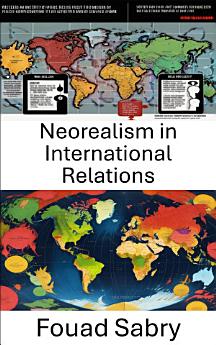Neorealism in International Relations: Understanding Power and Conflict in a Changing World
ກ່ຽວກັບປຶ້ມ e-book ນີ້
Chapter Overview:
1. Neorealism: Learn the basics of neorealism, its deviation from classical realism, and its emphasis on the anarchic nature of the international system.
2. International Relations Theory: Understand the spectrum of theories in international relations and where neorealism fits in.
3. Hans Morgenthau: Explore Morgenthau's classical realism, its impact on neorealism, and its influence on modern theories.
4. Balancing: Examine balancing as a neorealist concept for state stability.
5. Kenneth Waltz: Study Waltz's neorealism, focusing on his structural theory and the international system's framework.
6. Security Dilemma: Analyze how states’ security measures can unintentionally heighten tensions.
7. Regime Theory: Contrast regime theory with neorealism, highlighting the role of international institutions.
8. International Security: Assess international security within the neorealist context and its effect on global stability.
9. Realism: Review the broader concept of realism, its evolution, and theoretical importance.
10. Polarity: Discover how polarity influences state behavior and global power.
11. Bandwagoning: Understand how states align with stronger powers and its effects on global alliances.
12. Constructivism: Compare neorealism with constructivism, focusing on ideas and identities in international relations.
13. Offensive Realism: Explore offensive realism’s view that states aim to dominate and seek power.
14. Anarchy: Delve into anarchy’s impact on state behavior and international interactions.
15. Balance of Power: Investigate how the balance of power affects global stability and state strategies.
16. Defensive Realism: Learn about defensive realism’s focus on security rather than dominance.
17. Theory of International Politics: Examine Waltz’s influential work on neorealism.
18. Randall Schweller: Discover Schweller’s contributions to neorealism and his views on state behavior.
19. Liberal Institutionalism: Contrast neorealism with liberal institutionalism, emphasizing international institutions.
20. Classical Realism: Revisit classical realism’s influence on neorealism and its historical significance.
21. Charles L. Glaser: Explore Glaser’s perspectives and contributions to understanding state interactions.
Unlock a comprehensive understanding of international relations with "Neorealism in International Relations," your gateway to mastering global politics.











